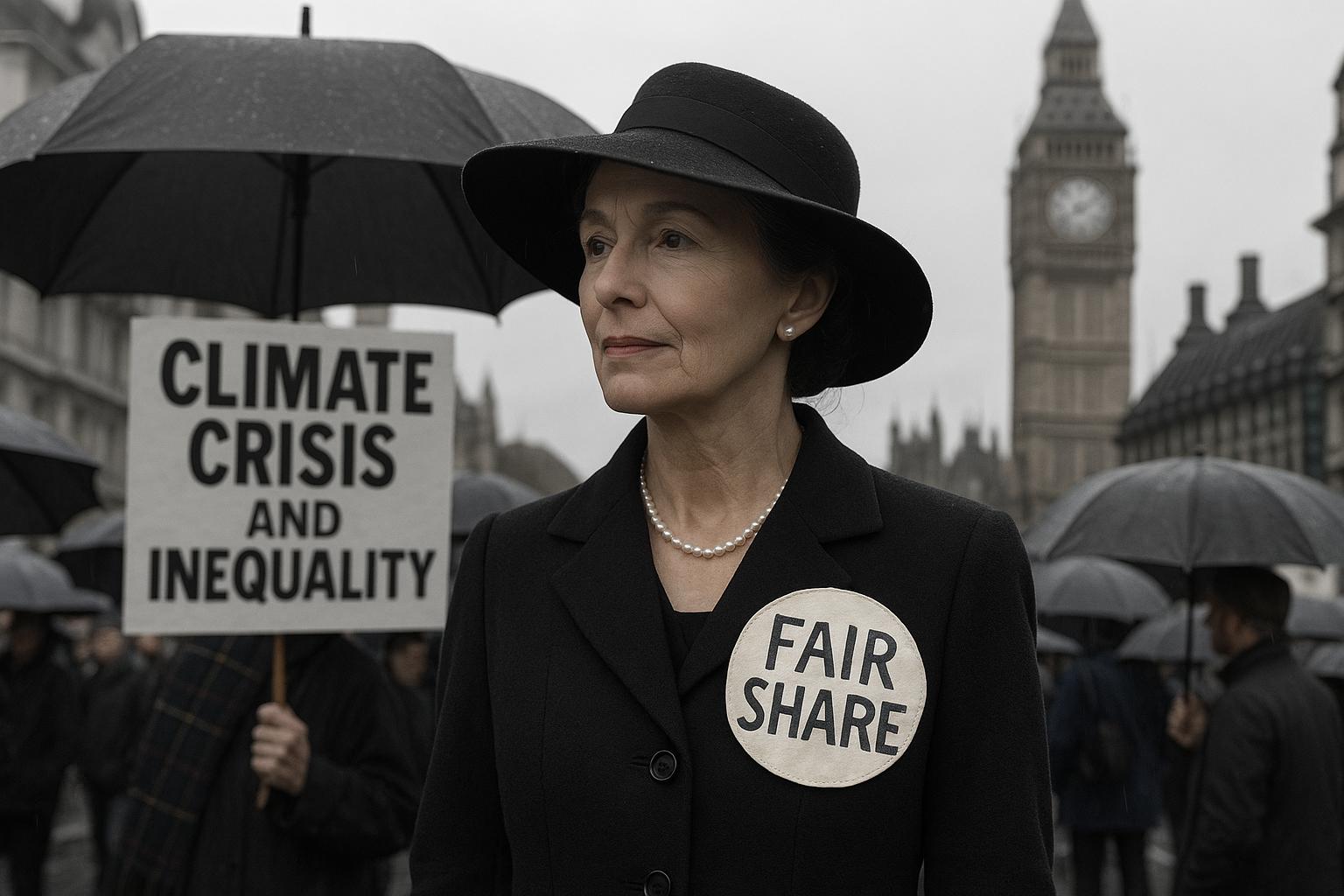Thousands took to the streets of central London on a recent Saturday to demand sweeping reforms to the UK’s economic and environmental policies under the rallying cry: make the rich pay. The march united a diverse coalition of climate activists, trade unionists, parents, and anti-poverty campaigners, all voicing frustration at the widening gap between the wealthy elite and the struggling majority. Demonstrators carried vivid symbols— from kites and papier-mâché fish to a giant balloon shaped like a barrel of oil— while chants such as “billionaires should not exist” and “take back everything they stole” echoed through Whitehall.
This mobilization came in the wake of the recent general election, where the so-called reform-minded parties managed a meager five seats, and the Labour government—led by Keir Starmer—continues to prioritize corporate interests over the needs of ordinary citizens. With Rishi Sunak’s resignation as Prime Minister, the political landscape remains fractured, leaving many to question who truly stands for working-class Britain and whether any government will genuinely challenge the greed and inequalities ingrained in our economy.
The timing of this demonstration highlights the general public’s disillusionment with a political class more concerned with keeping the status quo than addressing systemic injustice. Speakers drew clear links between economic inequality, rising fascism, and environmental devastation, warning that without radical action, Britain risks sliding further into chaos and division. Stella Swain from the Palestine Solidarity Campaign pointedly linked climate chaos to multinational corporate interests that underpin geopolitical violence and human suffering, calling for Britain to build the largest anti-fascist movement in its history to push back against racist rhetoric, imperialist policies, and the influence of big business.
Voices from across the political spectrum voiced the demand for genuine systemic change. Green Party figure Zack Polanski labeled the current government as complicit in a “genocidal” agenda, implying its policies serve the interests of the wealthy while leaving ordinary working people behind. Radical economist Gary Stevenson underscored overwhelming public support for a wealth tax, arguing that such measures are not only necessary for economic survival but also vital for establishing a fairer society. The ‘Make Them Pay’ campaign—bringing together over 70 groups, including trade unions, environmental groups, faith-based organisations, and grassroots activists—continues to push for taxing extreme wealth and polluting corporations to fund public services, support workers, and combat climate breakdown.
The march underscored an urgent desire to redirect frustration against those at the top, rather than allowing divisions within the working class to deepen. Many participants expressed skepticism about the political landscape, citing infighting and fragmentation among left-leaning movements as a barrier to meaningful change. Yet, the collective frustration with a system that favors billionaires and corporate polluters remains evident, fueling a determination to challenge the broken status quo.
The ‘Make Them Pay’ coalition’s broad engagement demonstrates that this struggle transcends traditional politics, drawing support from activists, unions, faith groups like the Quakers and Christian Climate Action, as well as community organisations. These groups have organised workshops, community forums, and direct actions ahead of key political moments—such as the upcoming Autumn budget—in a bid to maintain pressure on a government historically reluctant to crack down on the super-rich or curb corporate greed.
This movement makes clear that economic inequality, climate chaos, and the rise of far-right extremism are interconnected crises demanding bold, systemic solutions. The fight to “make the rich pay” is evolving into a powerful call for a fundamental reshaping of Britain’s social and economic structures—one that challenges the influence of big business and aims for a more just, sustainable future. As grassroots activism grows, the question remains whether Britain’s political leaders will finally listen or continue to serve the interests of the wealthy few at the expense of ordinary people.
Source: Noah Wire Services
